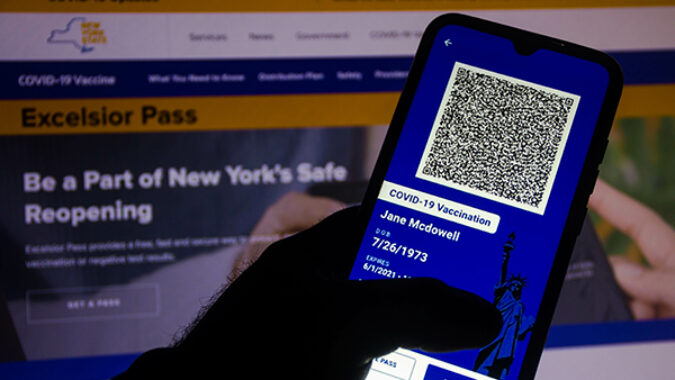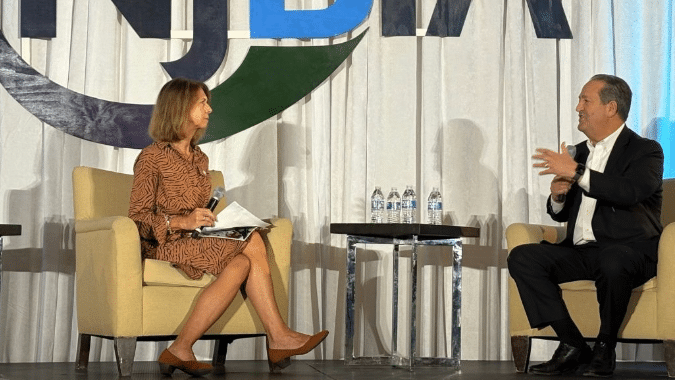New York City on Tuesday announced new indoor COVID-19 restrictions that will require proof of vaccination for customers and workers in restaurants, gyms and entertainment venues, which has prompted concerns from business groups and questions on whether New Jersey may follow suit.
Mayor Bill deBlasio said the order will go into effect Aug. 16, with full enforcement beginning Sept. 13. De Blasio said the mandate, known as the Key to NYC Pass, would encourage increased immunizations to combat the spread of the delta coronavirus variant. New York City is the first major U.S. city to announce a vaccination requirement for employees and customers of private businesses.
De Blasio said the city would begin inspecting businesses for compliance in mid-September. All affected customers and workers can either show their paper vaccination cards or upload their proof of vaccination to the Excelsior Pass application.
NJBIA President & CEO Michele Siekerka said New Jersey businesses would be placed in a Catch-22 situation should this state follow New York City’s lead on the proof of vaccination requirement.
“New York City’s announcement effectively mandates that all workers in restaurants, gyms and entertainment venues be vaccinated,” Siekerka said. “Mandating vaccines for the workforce can be a challenging situation. If the workforce is unionized there may be collective bargaining issues, and for other employers, a one-size-fits-all mandate may not bode well for the type of establishment they have.
“The mandate will also exacerbate the hiring and workforce crisis businesses are experiencing today – and the requirement that businesses check proof of customer vaccinations puts them in the position of having to police human behavior and endure customer pushback,” Siekerka said.
In New Jersey, businesses are already doing whatever they need to do to keep their workforce and their customers safe, Siekerka said.
“For many months now, New Jersey businesses have strongly encouraged their workers to be vaccinated against COVID-19, providing information, incentives and in most cases time off to obtain the vaccine,” Siekerka pointed out. “We also need to keep in mind that while the latest information from the CDC indicates that the delta variant may be spread by vaccinated people, the instances of illness are being mitigated by the steps that businesses are taking, such as requiring all employees to wear masks.”
According to CNBC, the New York City Hospitality Alliance called the new mandate “a difficult step and controversial,” but noted it could help prevent “new occupancy restrictions and shutdown orders that will again devastate small businesses and workers who have not yet recovered from the pandemic.”
The National Restaurant Association issued a statement supporting vaccinations but noting the mandate would be burdensome to enforce and result in “significant changes” for restaurants moving forward.
“Checking vaccination status isn’t like ID-ing a customer before serving them a drink—staff receive training on how to do that,” said Larry Lynch, senior vice president of Science and Industry for the National Restaurant Association.
“Now, without training, our staff members are expected to check the vaccine status of every customer wanting to eat inside the establishment," Lynch said. “Last year when mask mandates across the country were put in place, restaurant workers suffered terrifying backlash when enforcing those rules.”
The Association’s ServSafe experts even had to create a Conflict De-escalation training module for front-of-house workers confronted with customers who were angry about requests to wear masks, he said.
“We hope that the city will take this into consideration and will work with us to ensure there is clear guidance and support for our workforce,” Lynch said.




